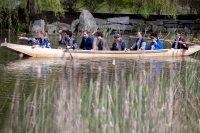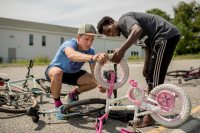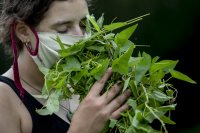
Harris Ramlee ‘25 woke up one morning this summer to find an unwelcome sleeping companion in his bed: A roughly 15-foot snake, most likely a reticulated python, the world’s longest snake. He was living in a primitive cabin in North Sumatra where he came to study orangutans in the Batu Kapal Conservation Sanctuary.
“I didn’t realize it was a snake that morning until one of my friends screamed. Another day I woke up and saw a monkey trying to steal my clothes. It was an eventful experience,” Ramlee said.
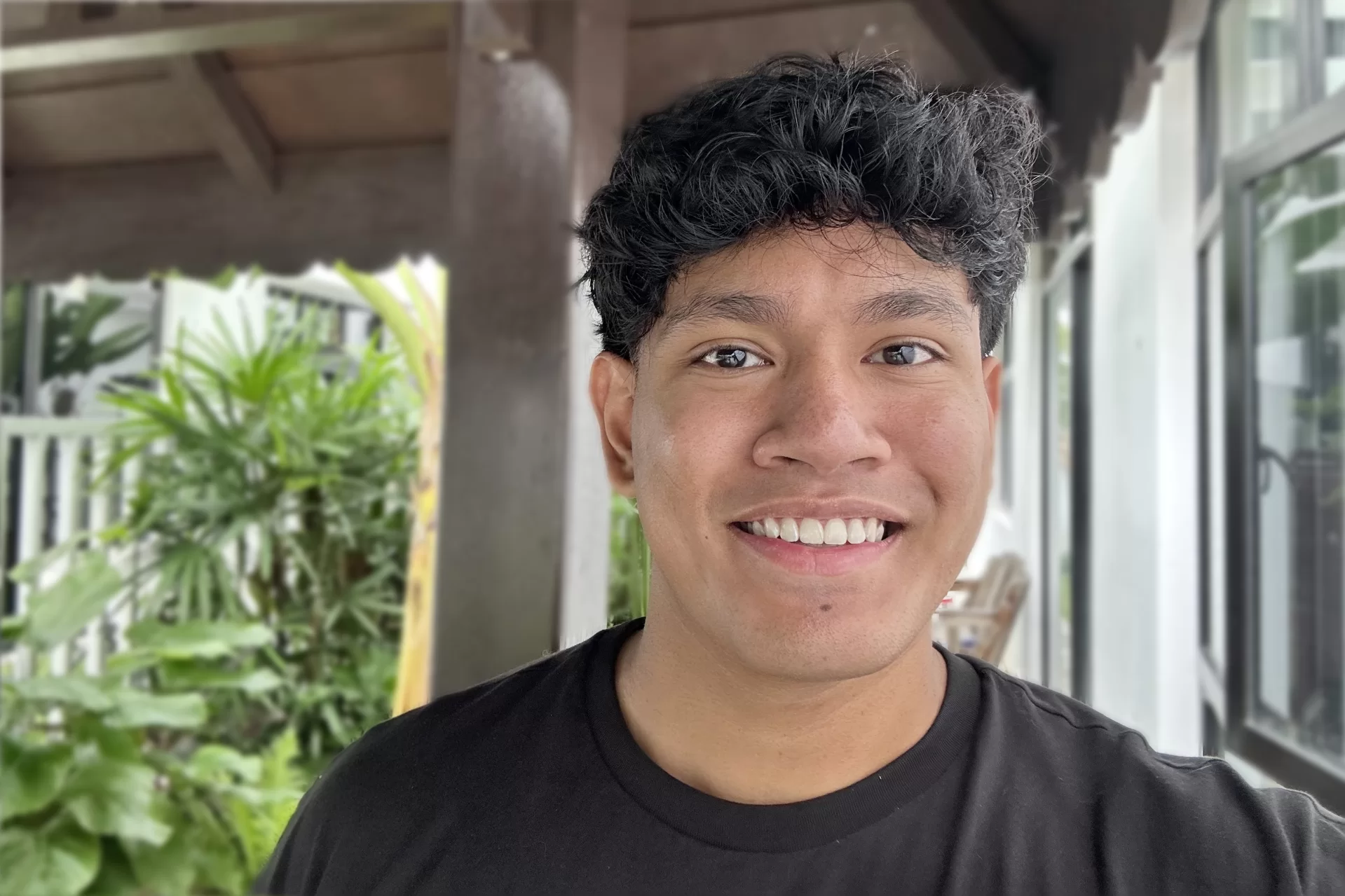
Snakes and monkeys aside, Ramlee discovered through his Purposeful Work internship at the Indonesian conservation sanctuary that he was — surprisingly — right where he needed to be.
Purposeful Work internships have a distinctive developmental structure that help students explore careers that might interest them while benefiting from new lessons and skills gained.
In Ramlee’s case, he knew before his trip to Indonesia that his interest was in marine biology, not wildlife biology. But the work monitoring endangered apes spoke to him — and Ramlee wanted to answer the call.
“It was beyond what I could imagine. I loved every single moment of it,” said Ramlee in a phone interview from his home in Kuala Lumpur, Malaysia. “I don’t know why I chose orangutans. You hear about elephant conservation, but rarely do people know that orangutans are an endangered species. And I am always someone who does something different from others.”
Video clips of the orangutans of the Batu Kapal sanctuary, courtesy of Harris Ramlee ’25.
Each summer, Purposeful Work interns take part in weekly check-ins with Bates staff and students to facilitate deeper reflection. This was not possible for Ramlee since he was out of cell range for most of his internship. But Beverly Vari, who oversees the Purposeful Work internship program, told Ramlee they would simply go with Plan B.
Vari spoke with Ramlee before he went into the jungle, communicated with him once through email when he had connectivity, and made a plan for their discussion when he arrived home in Malaysia. It’s all part of guiding students toward life-changing experiences.
“When he returns, we will talk about all those purposeful reflective components, and about a presentation he will give on campus — to pay the knowledge forward,” said Vari, Bates’ associate director for employer engagement and internships.
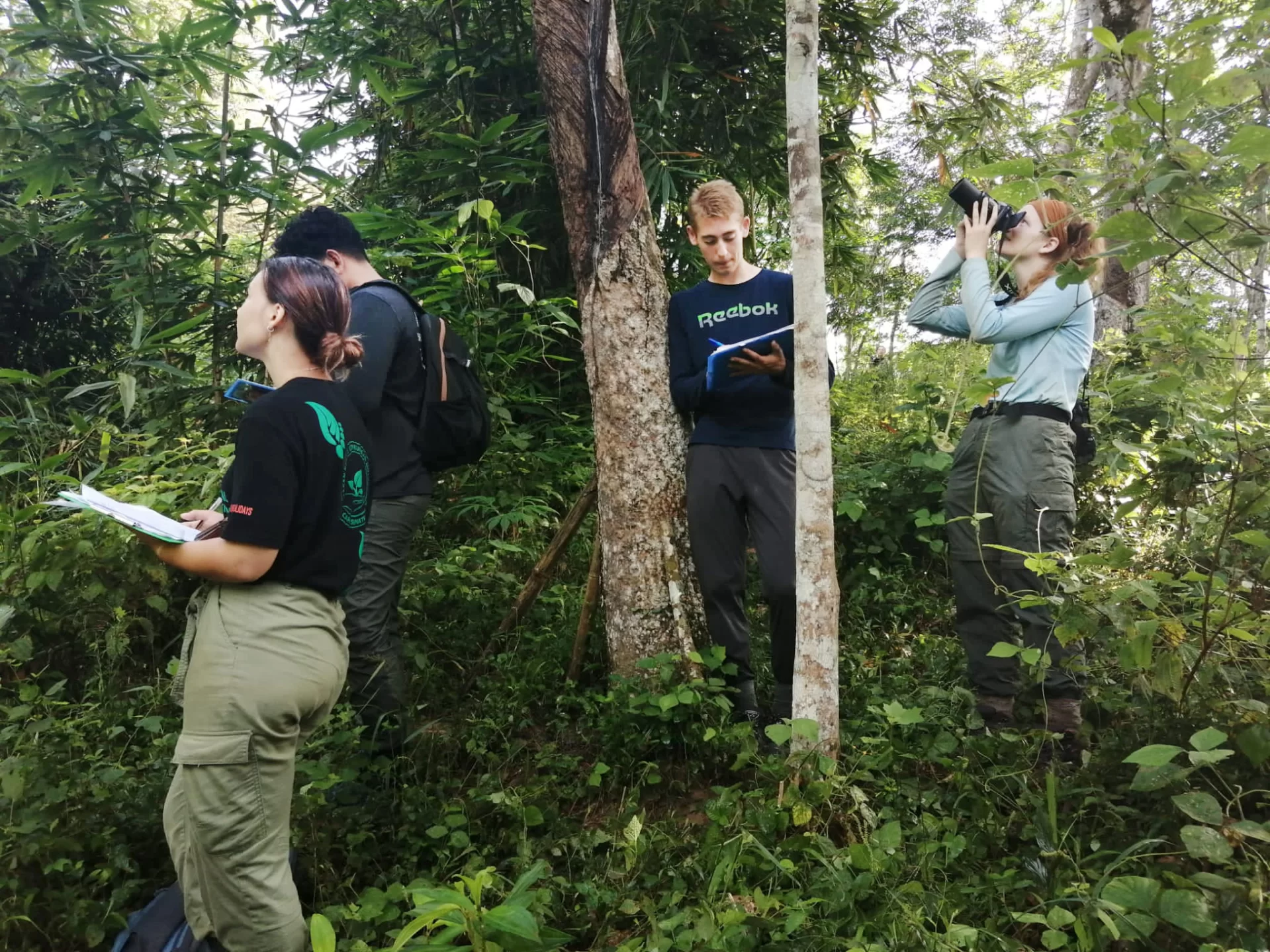
While in Indonesia, Ramlee helped a team of five other interns identify and map the travel coordinates of 17 wild orangutans in the sanctuary, located near Gunung Leuser National Park, which is part of a UNESCO World Heritage site and home to wild Sumatran tigers, elephants, orangutans, and rhinos.
The orangutans in the sanctuary have been cut off from the national park due to human activity, such as farming and deforestation. Batu Kapal is working to help the apes find travel routes back to the larger orangutan population in the national park.
Once found throughout Southeast Asia and South China, the endangered orangutan is now one of the most threatened species on the planet, found only in parts of Borneo and Sumatra.
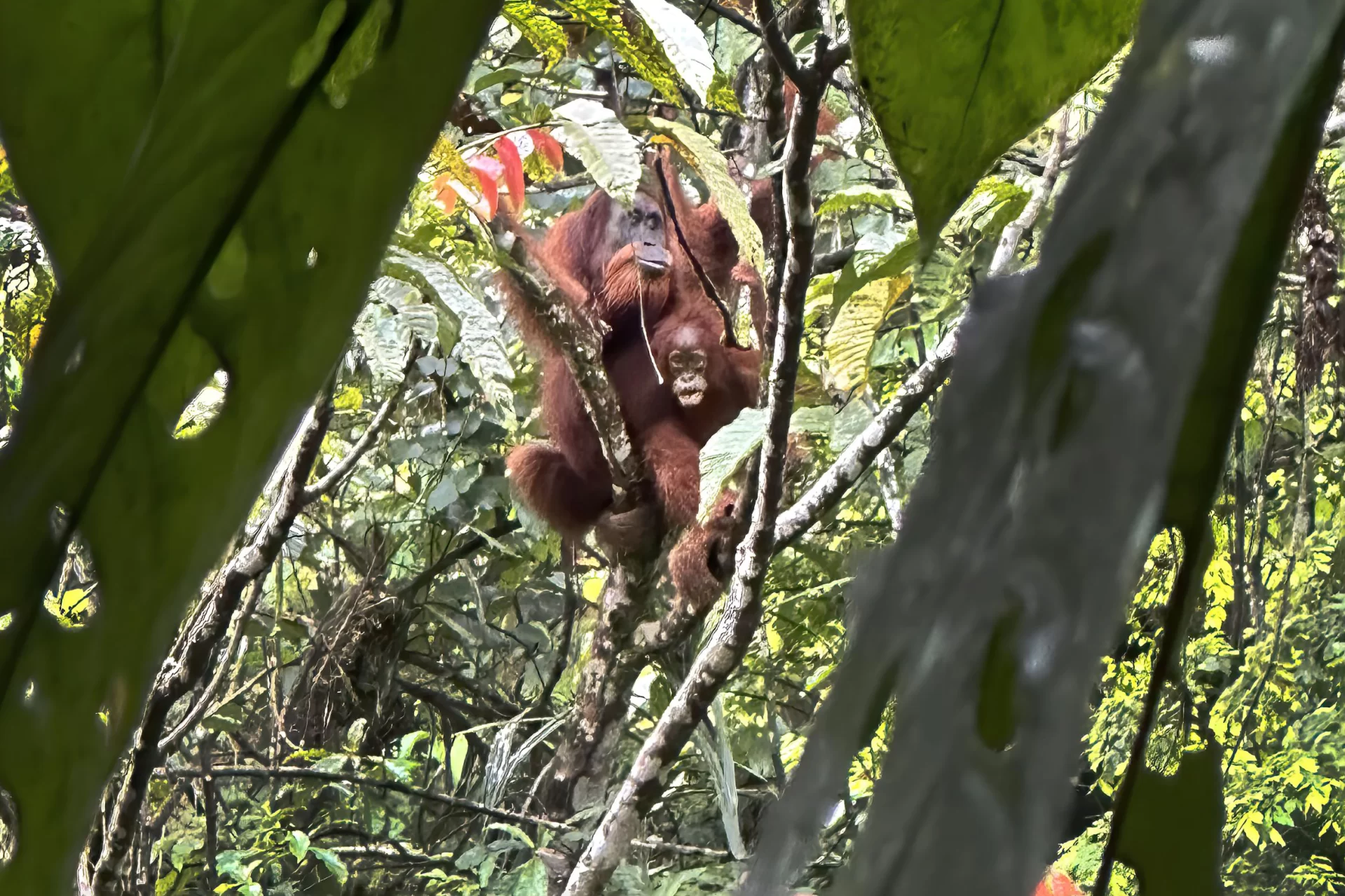
Ramlee and his team used GIS mapping to document the movements of the orangutans to try to highlight the areas in the jungle the apes used. They also worked to discourage local farmers from planting palm oil trees, a lucrative crop but one that is harmful to the orangutans because of the tree’s thorny branches. That work sometimes involved Ramlee serving as an interpreter. Because he is Malaysian and his language is similar to Malay, he was able to help his team communicate with the local farmers in Indonesia.
The experience typified a Purposeful Work internship. Ramlee went into the jungle with a narrow expectation: to study and help a wildlife species. But, in the end, he also worked to help build trust between the local people and the research team.
“The language barrier was very challenging. But we tried to manage it. I tried to help translate to English for the team, who came from a few countries in Europe, from England, Holland and Germany,” Ramlee said.
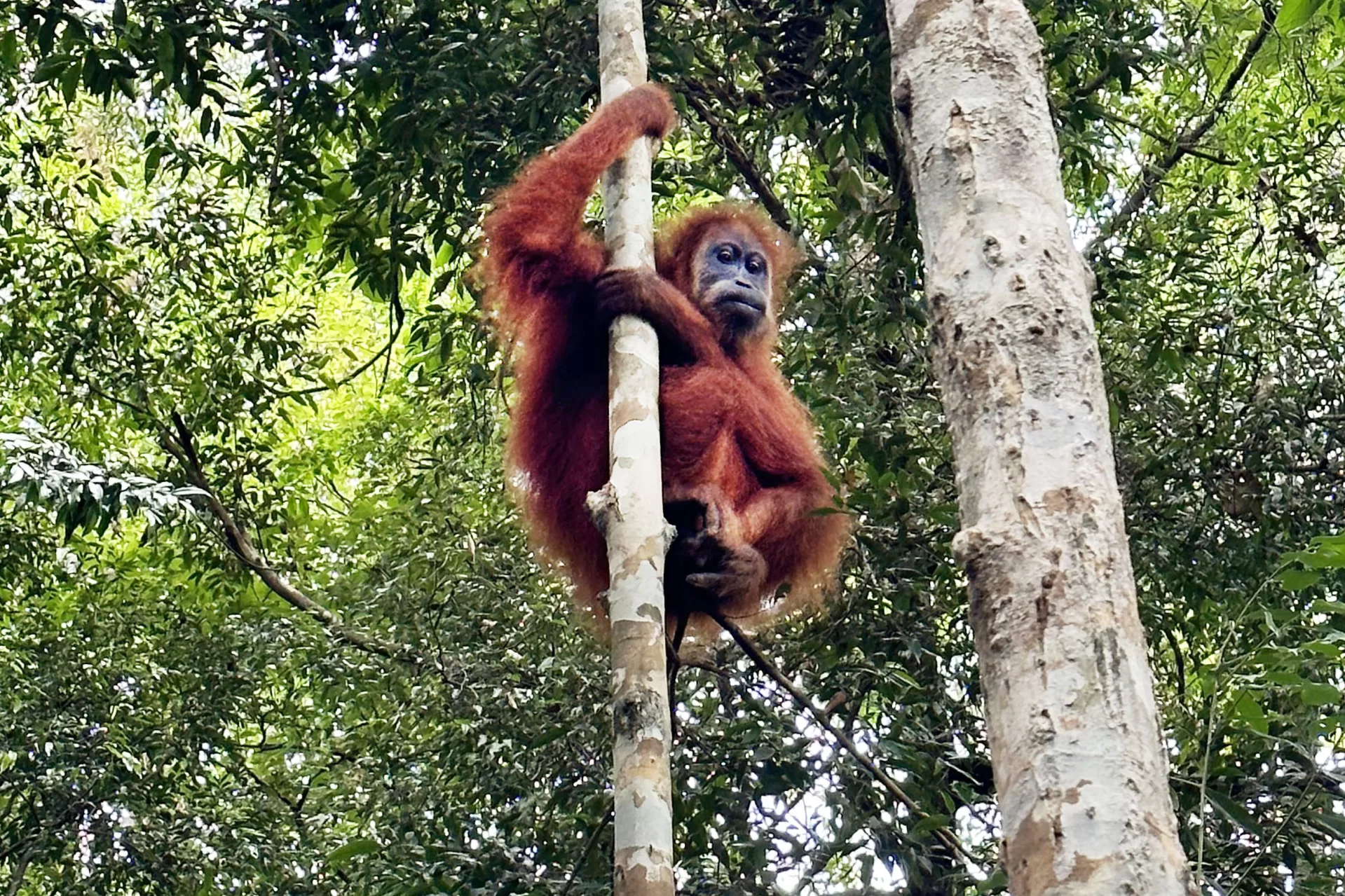
On average, the team saw orangutans four or five days each week, an event that elicited excitement and awe.
In training, they learned to move away from orangutans that made aggressive sounds, which could be considered warning calls. Ramlee said they also learned to stand 35 to 65 feet back from the apes — and never to make eye contact, which the apes could view as a challenge.
“They are wild and you want to keep them as wild as possible. So moving away from them tells them we respect their area,” Ramlee said.
After the internship, Ramlee still felt his primary interest was in marine biology. But he said he would never forget the apes he tried to help, or the people who joined him in that effort.
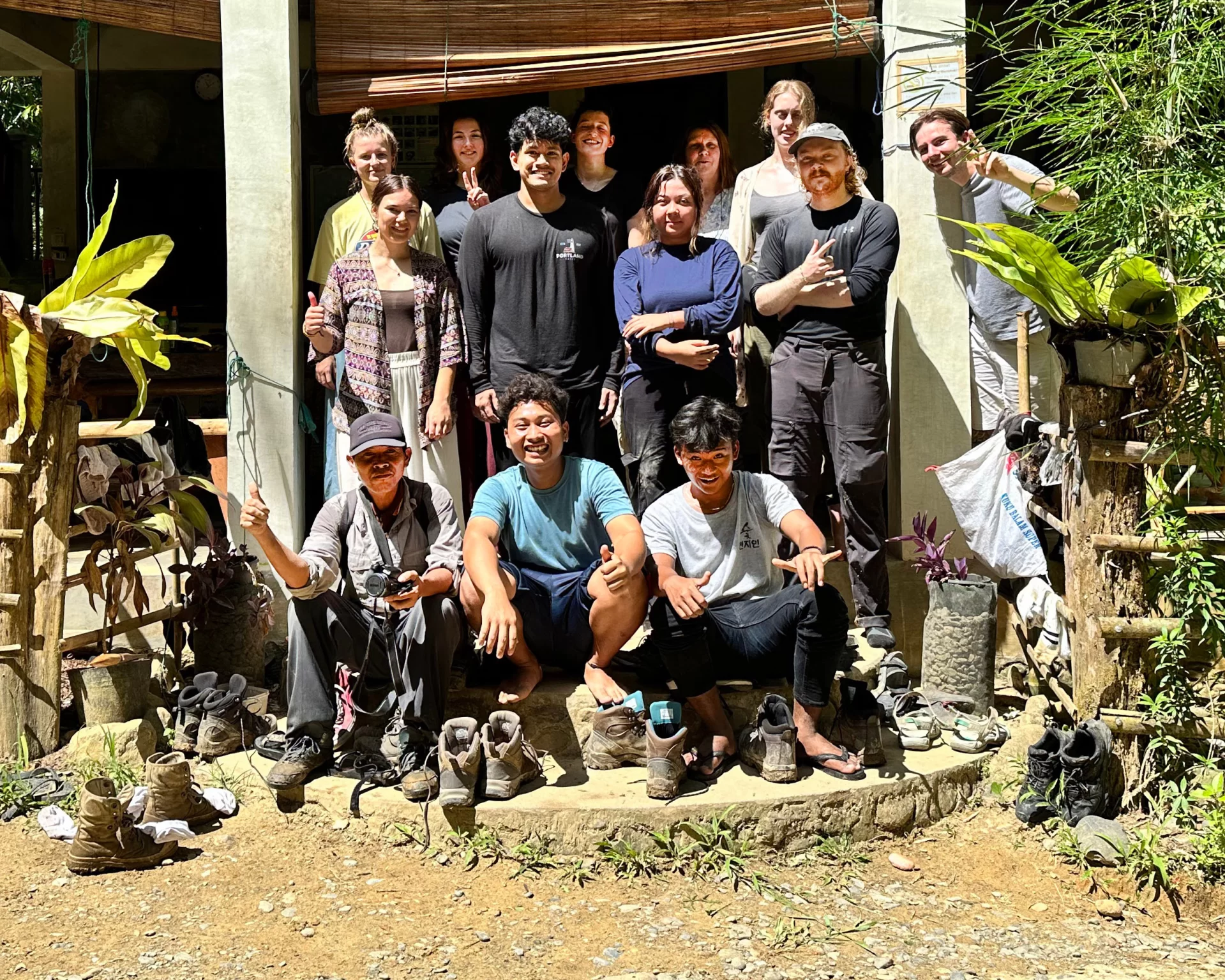
“Everyone was present. They were not thinking of the need to go on social media, or about playing some game on their phone. Everyone was sharing their experience and sharing stories,” Ramlee said.
“I learned it was not just about taking care of the conservation of orangutans, but also the relationship between the project and the local people. Every single moment at Batu Kapal I was gaining knowledge. Now I’m trying to see what I can do with this knowledge. I have two more years at Bates. I have some time to think about this.”
